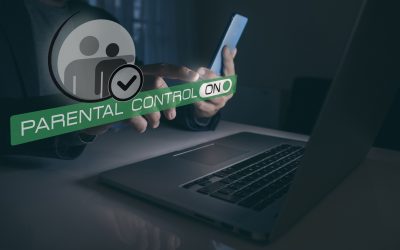In the vast world of technology and cybersecurity, there are a lot of myths floating around. You’ve probably heard a few that made you scratch your head or, worse, led you down the wrong path. Let’s set the record straight by debunking five common tech myths that might be causing more trouble than you realize.
Myth 1: Public Wi-Fi Is Safe If It Requires a Password
The Reality: Even if the Wi-Fi at your favorite coffee shop requires a password, that doesn’t mean the Wi-Fi network is secure. Those passwords are often easy to obtain, rarely changed, and available to anyone who asks. Sometimes they’re even posted on a sign for all to see! Kind of defeats the purpose of a password. This means others on the same network can potentially intercept your data.
What You Need to Know: Public Wi-Fi is a breeding ground for cyber snoops. If you must use it, avoid accessing sensitive information like banking apps or confidential emails. Better yet, use a Virtual Private Network (VPN) to add a layer of security. It helps keep your data safe from prying eyes. This article from Aura goes in depth about the dangers of public wi-fi and how to keep your data secure.
Myth 2: Computer Viruses Are Easy to Spot
The Reality: While some malware makes itself known with pop-ups and sluggish performance, many viruses are stealthier than that. They’re designed to operate in the background, quietly stealing your data without leaving obvious signs.
What You Need to Know: Don’t wait for flashing warning signs. Regularly updating your security software and running scans is essential. It’s like going to the doctor for a check-up, you might feel fine, but it’s better to catch issues early before they become big problems.
Myth 3: Hackers Don’t Target Small Businesses
The Reality: Small businesses are actually prime targets for hackers because they often have weaker security measures, making them an easier catch for cybercriminals looking for a quick win.
What You Need to Know: No business is too small to be a target. Investing in security measures and training your employees to spot phishing attempts is crucial. Not making cybersecurity a priority when it comes to your small business can have a devastating outcome.
The U.S Small Business Administration (SBA) has some shocking statistics when it comes to the impact data breaches can have on small businesses.
Myth 4: Antivirus Software Is All You Need for Security
The Reality: Cybersecurity is a multi-layered approach, whether you’re a personal user or a business owner. While antivirus software is an important line of defense, it’s not a foolproof solution. It doesn’t protect against all types of threats like phishing attacks, ransomware, or insider threats.
What You Need to Know: Combine your antivirus software with safe browsing habits, regular software updates, strong and unique passwords, multi-factor authentication, and a healthy skepticism of unsolicited emails or messages. Be cautious about the websites you visit and the links you click.
In addition to the measures personal users take, businesses need to implement more advanced security protocols. This includes network security measures, regular employee cybersecurity training, strong email security, and comprehensive backup solutions.
Myth 5: Cybersecurity Is Only an IT Issue
The Reality: Cybersecurity is everyone’s responsibility. Human error, like clicking on a suspicious email link, is one of the most common ways breaches occur.
What You Need to Know: Creating a culture of security awareness is key. Implement policies for strong password creation, ensure employees lock their workstations when away, and provide regular cybersecurity training. It’s easy to slip back into old habits, so regular reminders are a must. After all, a chain is only as strong as its weakest link.
Don’t let these common myths lead you astray. Understanding the realities of technology and cybersecurity can save you time, money, and a whole lot of headaches.
At Securus Systems, we’re here to help you navigate the ever-changing tech landscape with confidence and ease.
If you have questions or need assistance strengthening your cybersecurity defenses, we’ve got your back.
Stay safe, stay Securus!



